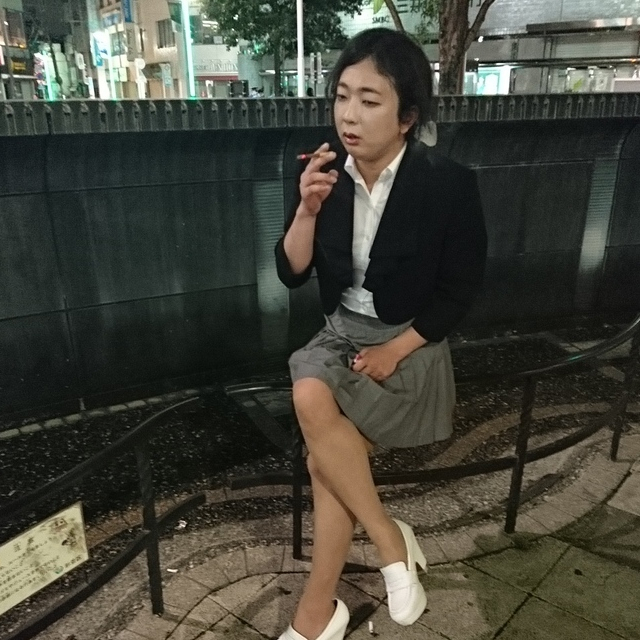Annual Reconciliation Studies Week (at the end of February)
Special Lecture by Professor Keiko Sakai “A New Framework for International Relations and Area Studies: Introducing the Concept of ‘Embedded Relationality'”
Reconciliation Week
Gender and Ethnicity Group Session
Friday, February 28, 2025, Waseda University, Waseda Campus, Building 22, Room 502
Part 1: 14:00-16:15
Part 2: 16:30-18:00
The Gender and Ethnicity group invited Professor Keiko SAKAI, Director of the Center for Relational Studies on Global Crises at the University of Chiba, for Reconciliation Week 2025 of the International Reconciliation Project. The session was composed of two parts. In the first part, open to the public, Professor Sakai delivered a speech titled “Proposal for Relational Studies on Global Crises and Expectations for Digital Humanities (from the Perspective of Contemporary Arab Political Studies).” The first session had fifteen in-person participants and twenty-seven online participants.
In the second part, joined only by the International Reconciliation Project members, two young scholars made presentations about the planned book project under the International Reconciliation Project. Professor Sakai made comments on their presentations.
Part 1
Speech by Professor Sakai, “Proposal for Relational Studies on Global Crises and Expectations for Digital Humanities (from the Perspective of Contemporary Arab Political Studies).”
Professor Sakai addressed that contemporary world in the twenty-first century has experienced unprecedented patterns of conflicts, clashes, terrorisms, refugee crises, and cross-border social and political networks, particularly in the Middle East region. The traditional International Relations scholarship, which has been rather Western- and state-centric, have not been able to fully analyze or resolve these challenges. This is since the scholarship has been mostly blind to crucial non-Western major states and actors. Professor Sakai characterizes that these challenges are “global” crises with spatial and temporal mutual interactions and interdependence among agents.
As a new approach to address such challenges, she proposes Relational Studies on Global Studies. It is a relation-based paradigm to see how the actor is located in networks of relationships at local, national, and transnational levels. She frames such networks and relations as “embedded relationship” since these networks and relations as well as actors in them have remained invisible to the traditional IR scholarship. Even though Area Studies scholars have recognized and demonstrated these relations and actors, the traditional IR scholarship has had the tendency to translate them into Western context and simplified them as agent-based phenomena.
According to Professor Sakai, “embedded relationship” can demonstrate the dynamism of the actor’s identity generation and transformation. Thus, the dynamism of perception matters significantly. Relational Studies on Global Crises focuses on intersubjective recognition, emotions such as humiliation, and memory of ethnic and religious groups playing out in the embedded relationship.
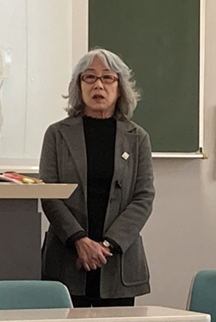
Professor Keiko SAKAI
Professor Sakai presented three patterns of embedded relationships. The first type is imaginary networks in spatial historical memory as appearing as historical perception. It is seen in the anti-Western perspectives in the Middle East backed by the memory about colonialism. The second is patternalized categorization framework embedded in relations, such as Orientalism. And the third is internalized perceptions of others and their mutual misunderstanding. A case in points is the American side’s miscalculation that they would be welcomed by the Iraqis in the 2003 invasion. These three patterns can be grasped through multi-disciplinary and practical research. These patterns are expected to serve to enhance an understanding and resolution of various contemporary global crises.
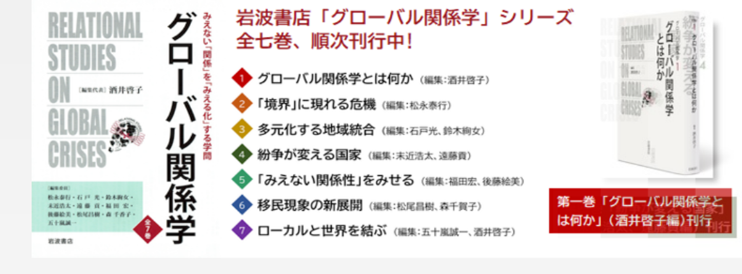
Seven volumes of Global Studies on Global Crises
Q&A
In the Q&A section, several questions were raised. In response to the first question about the comparison of embedded relationship between East Asia and the Middle East, as obviously seen in the history issues, Professor Sakai pointed out the absence of colonial powers’ apologies about the artificial change of national borders in the Middle East after the First World War.
As for the second question of the difference of area studies between Japan and Europe, she pointed out that Japan, as the defeated side in the Second World War, tends to narrow down area studies more to the subject of reconciliation of history issues.
The third question was raised about the absence of civil war in postwar Japan in comparison with Iraq after 2003. Professor Sakai explained the civil war in Iraq after 2003 was partly attributed to the complexity of Iraqi society with elements of multilayered communities in the forms of Arab nationalism, Isram, hometown, and victimhood competition.
The final question was about the methodology of Relational Studies on Global Crises. Professor Sakai pointed out that how to visualize the embedded relationship is one of the main subjects for Relational Studies on Global Crises.
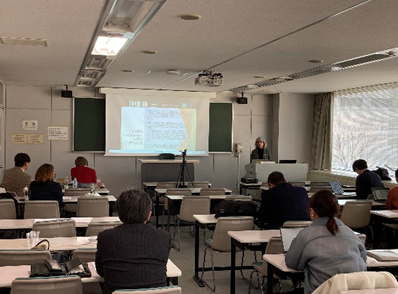
Part 2
Young Scholar Presentations
Following the session of professor Sakai’s, two young researchers made their presentations and received comments and advice from Professor Sakai.
Presentation of Dr. Hiroko KAWAGUCHI
“Why did the Truth and Reconciliation Committee fail to be realized? Change in Compensation System in Post-Conflict Uganda”
Dr. Kawaguchi made presentation about her research of reconciliation in Uganda, which suffered from the internal conflict in the 1990s between the government and the Lord’s Resistance Army (LRA), a militia group composed of former government Acholi army members. Introducing the amnesty issued by the Ugandan government in 2000 and the arrest and conviction of the former LRA leaders by the International Criminal Court from the mid-2015 to the early 2010s, Dr. Kawaguchi focused on how the truth and reconciliation committee proposed by the Ugandan Acholi diaspora group has failed to be accepted by Ugandan people. The diaspora’s proposal contained a reconciliation measure of the mixture of traditional and local compensation and justice systems.
Ugandan victims and bereaved families, however, did not seek reparations from former LRA soldiers. The main reason was because the former LRA soldiers were abducted child soldiers and then the separation of the offender and the victim was unclear. Furthermore, the proposed compensation system accompanies various responsibilities for the recipients. For example, the recipients had to use compensation for their future marriage and had to name their children after the deceased, which many recipients wished to avoid.
Moreover, in reality, the traditional compensation goods of cows and goats have been changed to cash compensation since the colonial period. Still, cash compensation was quite inadequate for preparation for marriage. Overall, the compensation system has been changed over time in Uganda.
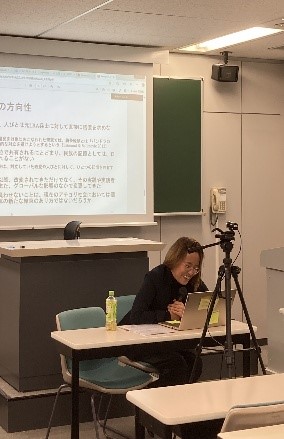
Comments from Professor Sakai
Professor Sakai appreciated the detailed field study on Uganda by Dr. Kawaguci and also advised to contextualize the case in a wider framework of reconciliation more clearly. As for the neglect of the traditional compensation system among younger generations in Uganda, Professor Sakai suggested that the reason why the generational change occurred be explained. She also indicated the importance of generational change and modernization in Uganda for the explanation. Professor Sakai also advised to clarify the meaning and motivations of the proposal from the global diaspora of Ugandans.
Presentation of Dr. Hajime ONOZAKA “Reconciliation in Genealogy of International Relations: The Case of Christian Socialism in the Inter-war Period”
Dr. Onozaka presented her research proposal on the theoretical study of reconciliation as drawn from the traditions of Christianity and socialism. Her research question comes from the study of the history of international relations scholarship in which she has found the deep influence of Christian socialism, as seen in the studies of E. H. Carr, Karl Polanyi, and David Mitrany. For reconciliation study, Dr. Onozaka plans to adopt the notion of pluralistic state and the multidimensional aspect of the individual, composed of gender, nationality, ethnicity, and ideology.
Next, Dr. Onozaka introduced the proposal’s case study plan on the advocacy movement of Shanghai YWCA, a Christianity-based international NGO, for the improvement of working conditions and factory inspection system in the International Settlement of Shanghai in the 1930s. For this case study, Dr. Onozaka introduced various persons as Christian socialists such as the Leftist British Labour Party intellectual leaders Stafford Cripps and Richard Tawney, and leaders of Shanghai YWCA, for example, Eleanor Hinder and Agatha Harrison.
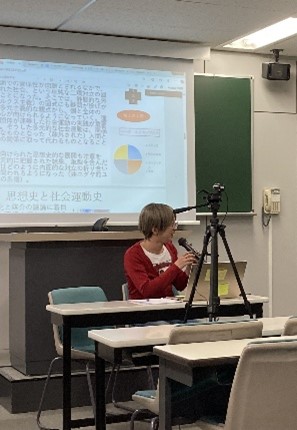
Comments from Professor Sakai
Professor Sakai asked for an explanation of why Christianity and socialism should be studied. She thinks that socialism, as part of modern Western thought, is originated in Christianity.
Professor Sakai also indicated that the multidimensional aspect of the individual and the notion of reconciliation are not unique only to Christianity. The concept of the unity with the God exists also in the idea of Tawhid in Islam.
To these comments, Dr. Onozaka responded that her question comes rather from the case study in the labor movement in Shanghai than from religious and political thought question. She indicated that her research proposal is more about Christian socialism and that it does not seek to demonstrate the uniqueness of reconciliation in Christianity and socialism.
Regarding the case study of Shanghai YWCA, Professor Sakai advised that imperial power politics, particularly that of the Great Britain, needs to be taken into consideration and that it is important to see whether “reconciliation” is really reconciliation in the genuine meaning of the term. She also advised the importance of clarifying who is advocating what in the discourse analysis.


